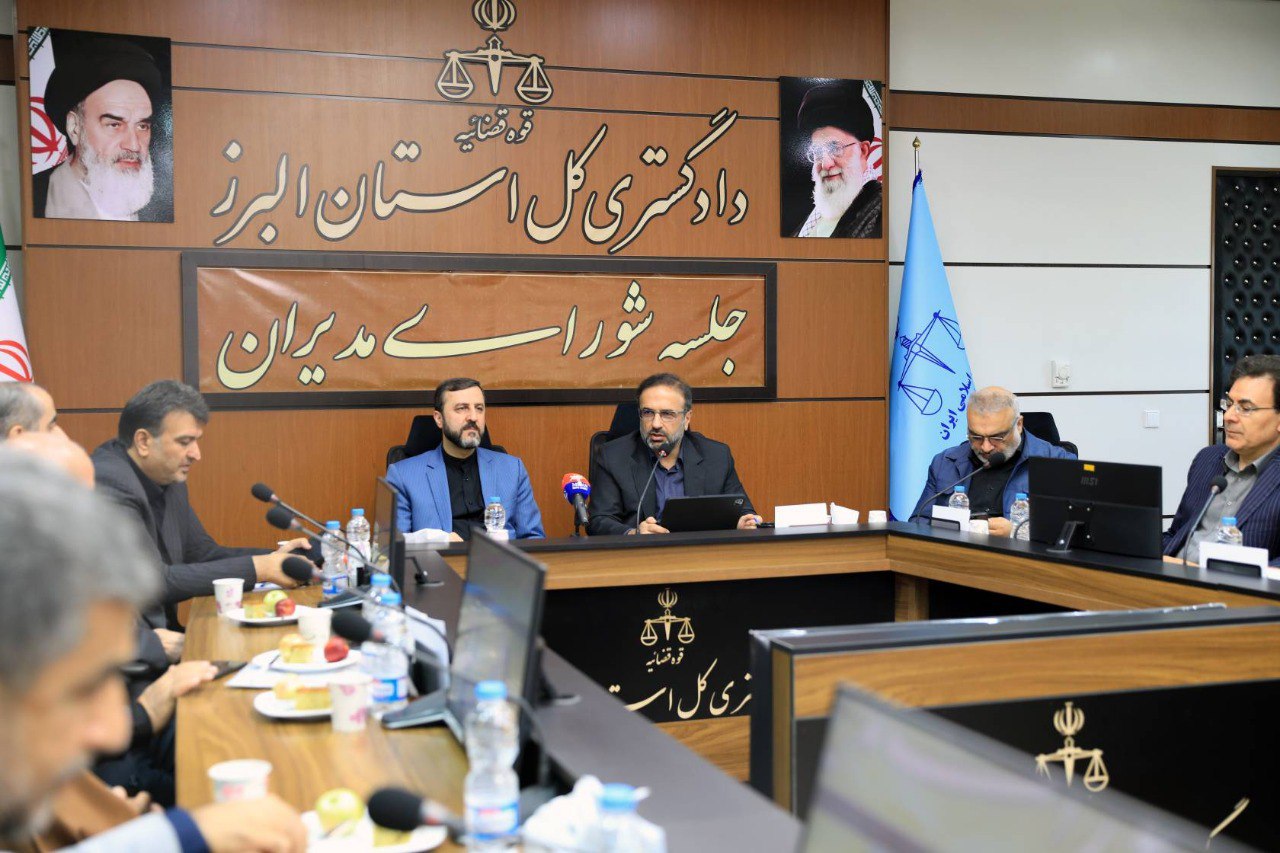The Vice President of the Judiciary for International Affairs and the Secretary General of the High Council for Human Rights, on Saturday, July 13, 2024, during his trip to Alborz Province, visited the General Justice of this province.
During his visit to Alborz province and participating in the meeting of the judicial council of the province, which was held with the presence of the Chief Justice of the province, Kazem Gharibabadi, while explaining the missions of the Vice Presidency of the Judiciary for International Affairs and the High Council for Human Rights, called the judicial diplomacy as one of the most important priorities of this vice presidency.
The Vice President of the Judiciary for International Affairs went on to explain the missions of this Vice Presidency in the field of foreign nationals, judicial assistance, extradition of criminals, transfer of convicts and follow-up of judicial affairs of Iranians abroad and noted: “According to statistics, nearly 95% of foreign prisoners in the country are Afghan nationals about which the necessary follow-ups for the transfer of eligible convicts based on the bilateral agreement are being carried out and we hope it will be implemented in the current year”.

In another part of his statement, the Secretary General of the High Council for Human Rights emphasized on the increase of defense capabilities in the field of missile and drone industries, nuclear capabilities with regard to self-sufficiency in the nuclear fuel cycle and enrichment and regional influence of the Islamic Republic of Iran in the light of national unity and the masterful measures of the Supreme Leader. He added: “These three areas are the same areas where the enemies have tried to impose sanctions to control or limit our areas of power, but they have completely failed, although efforts should continue to neutralize and eliminate the sanctions, using different capacities”.
Gharibabadi also considered the issue of "human rights" as a tool for Western countries to put pressure on independent countries like the Islamic Republic of Iran and stated: “The policy of the Islamic Republic of Iran in the field of human rights is to support and promote human rights inside the country based on Islamic standards and the constitution”. In this regard, the Secretary General of the High Council for Human Rights asked the judicial colleagues to pay special attention to honoring the clients and the implementation of justice and the realization of citizenship and human rights.
Gharibabadi further discussed the measures taken in the field of terrorism and stated: “By the end of this year, cases will be filed against all terrorist groups and their extradition will be requested from the relevant foreign countries. The next step is the trial of terrorists”. He added: “In this regard, although with a delay, the trial court for the case of the terrorist group of the Monafeqeen (Hypocrites) and its leaders and members have been formed, and the 15th session was held last week. The list of nearly 120 terrorists who attribute themselves to the Kurds has also been sent to Iraq for extradition and their trial will be held soon. Regarding the members of the ISIS terrorist group, Takfiri groups, and other terrorists, judicial and intelligence measures have been taken to widely identify them, and in addition to demanding their extradition, the investigation of their crimes will also be started”.
Referring to the Joint Judicial Committee between Iran and Iraq to Deal with Terrorism, the Vice President of the Judiciary for International Affairs noted: “Syria has now been added to this committee and we are negotiating to add Russia and Afghanistan to this committee. We hope that a five-way committee will be formed in this field by October of this year”.
Gharibabadi also pointed to the establishment of the Special Judicial Complex for International Affairs with the title of "Judicial Complex 26" with the aim of concentrating, coordinating and speeding up addressing the crimes and lawsuits with an international aspect and said: “The structure of this complex has been announced to the Judiciary of Tehran Province. It will start working soon”.
At the end of this meeting, Gharibabadi answered some legal and judicial questions.